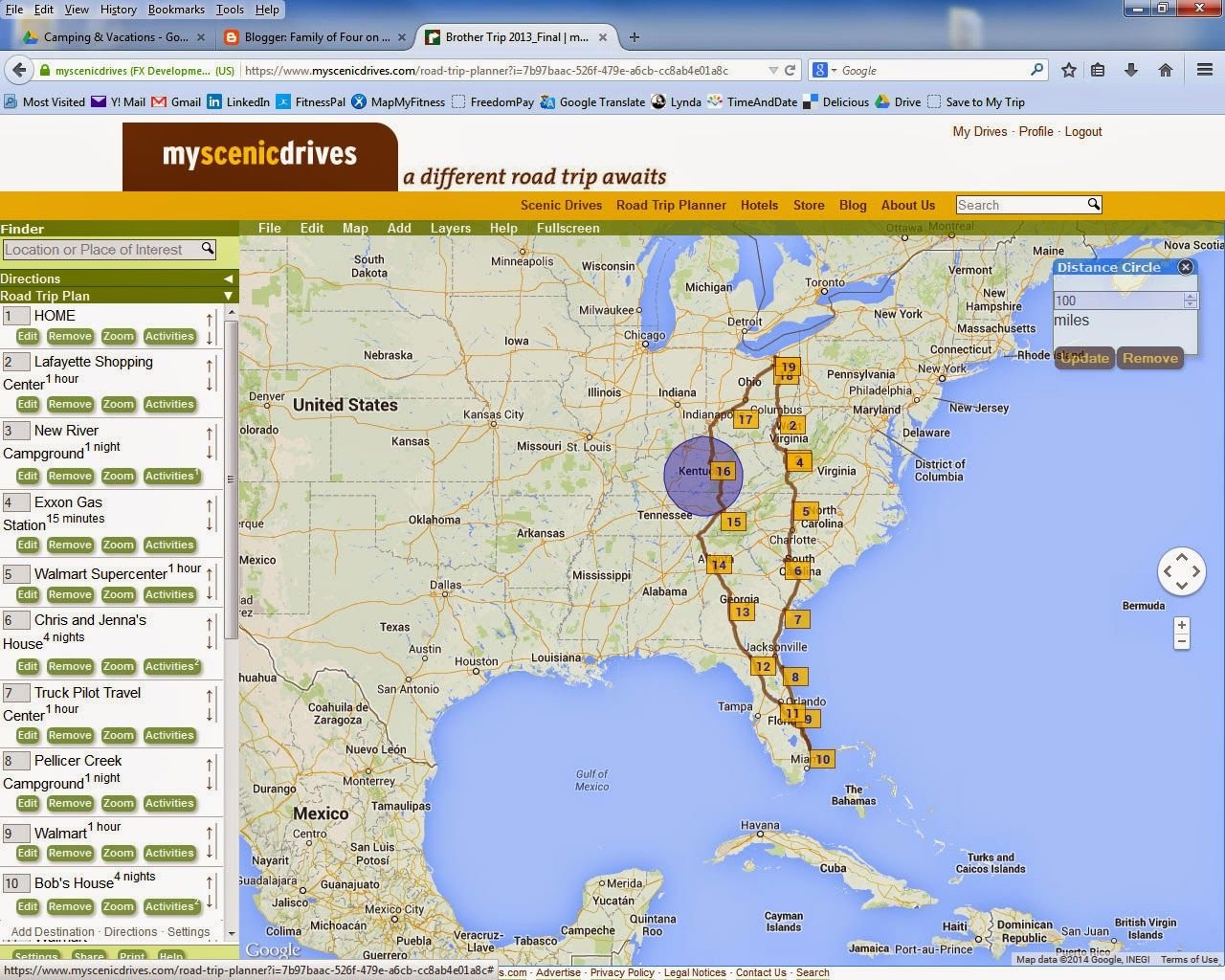The Rise of the Digital Nomad: How Online Trip Planners are Revolutionizing Travel
flightticketbooking.co.in understands that the modern traveler craves efficiency, personalization, and seamless experiences. In today’s fast-paced world, the days of poring over paper maps and dog-eared guidebooks are rapidly fading. Online trip planners have emerged as indispensable tools, empowering individuals to curate their dream vacations with unprecedented ease. From budget-conscious backpackers to luxury seekers, these digital platforms are revolutionizing the way we approach travel, offering a wealth of resources and functionalities at our fingertips. This article delves into the world of online trip planners, exploring their benefits, key features, and the transformative impact they’re having on the travel industry.
The Allure of the Digital Itinerary: Why Online Trip Planners are So Popular
The popularity of online trip planners stems from their ability to address several key pain points traditionally associated with travel planning. Here’s a look at some of the primary drivers behind their widespread adoption:
- Time Savings: Researching flights, accommodations, activities, and transportation options can be incredibly time-consuming. Online trip planners consolidate all these elements into a single platform, streamlining the process and saving travelers valuable hours.
- Personalization: Generic itineraries are a thing of the past. These planners allow users to tailor their trips to their specific interests, budget, and travel style. Whether you’re a foodie, an adventure enthusiast, or a history buff, you can create an itinerary that reflects your unique preferences.
- Organization: Keeping track of bookings, confirmations, and important documents can be a logistical nightmare. Trip planners provide a centralized hub for managing all travel-related information, ensuring that everything is easily accessible.
- Cost-Effectiveness: Many online trip planners offer tools for comparing prices on flights, hotels, and other travel expenses, helping users find the best deals and stay within their budget. Some even provide alerts when prices drop.
- Accessibility: With the rise of mobile technology, online trip planners are accessible anytime, anywhere. Travelers can access their itineraries, make changes, and receive updates on the go, ensuring a seamless and stress-free experience.
- Inspiration & Discovery: Beyond simply organizing logistics, these platforms often offer curated content, destination guides, and user reviews, inspiring travelers to discover new places and experiences.
Key Features of a Comprehensive Online Trip Planner
While the specific features may vary depending on the platform, most comprehensive online trip planners offer a core set of functionalities:
- Flight Booking: Integration with flight search engines allows users to compare prices from multiple airlines, filter results based on preferences (e.g., layover duration, baggage allowance), and book flights directly through the platform.
- Accommodation Booking: Similar to flight booking, these planners connect with hotel booking sites, enabling users to search for accommodations based on location, price, amenities, and reviews. Options range from budget-friendly hostels to luxurious resorts.
- Activity Planning: This feature allows users to discover and book tours, attractions, and other activities in their chosen destination. Users can often filter activities by category (e.g., historical sites, outdoor adventures, culinary experiences) and read reviews from other travelers.
- Transportation Planning: Trip planners may include tools for booking transportation within a destination, such as rental cars, trains, buses, and airport transfers. They may also provide information on public transportation options.
- Map Integration: Interactive maps allow users to visualize their itinerary, identify points of interest, and plan routes between destinations. Some planners even offer offline map access for use in areas with limited internet connectivity.
- Budgeting Tools: These tools help users track their expenses and stay within their budget. Users can input their estimated costs for flights, accommodations, activities, and other expenses, and the planner will provide real-time updates on their spending.
- Itinerary Sharing: The ability to share itineraries with friends and family is a valuable feature, especially for group travel. This allows everyone to stay informed about the trip plans and collaborate on the itinerary.
- Collaboration Features: Some advanced planners allow multiple users to collaboratively edit and manage the itinerary, making it easier to plan trips with friends or family.
- Offline Access: Downloading the itinerary for offline access is crucial for travelers who may not have reliable internet access. This ensures that they can access their plans even in remote areas.
- Real-Time Updates & Notifications: Receiving real-time updates on flight delays, gate changes, and other travel-related information can be a lifesaver. Trip planners often send push notifications to keep users informed.
Beyond the Basics: Emerging Trends in Online Trip Planning
The world of online trip planning is constantly evolving, with new technologies and features emerging to enhance the user experience. Here are some of the key trends shaping the future of travel planning:
- AI-Powered Recommendations: Artificial intelligence is being used to provide personalized recommendations for destinations, activities, and accommodations based on users’ past travel history, preferences, and interests.
- Augmented Reality (AR): AR apps are being integrated into trip planners to provide immersive experiences, such as overlaying information about historical sites onto live camera views.
- Virtual Reality (VR): VR technology is allowing travelers to virtually explore destinations before they even book their trip, providing a realistic preview of what to expect.
- Sustainability Focus: An increasing number of trip planners are incorporating features that allow users to make more sustainable travel choices, such as booking eco-friendly accommodations and transportation options.
- Integration with Social Media: Seamless integration with social media platforms allows users to share their travel plans, photos, and experiences with their friends and followers.
- Voice-Activated Planning: The rise of voice assistants like Siri and Alexa is enabling travelers to plan their trips using voice commands, making the process even more convenient.
- Hyper-Personalization: Trip planners are becoming increasingly sophisticated in their ability to personalize the travel experience, taking into account a wide range of factors such as dietary restrictions, accessibility needs, and cultural sensitivities.
Choosing the Right Online Trip Planner: A Guide for Travelers
With so many online trip planners available, it can be challenging to choose the right one. Here are some factors to consider when making your selection:
- Your Travel Style: Are you a budget traveler, a luxury traveler, or something in between? Choose a planner that caters to your specific travel style and offers the features you need.
- Your Destination: Some planners specialize in certain regions or types of travel. If you’re planning a trip to a specific destination, look for a planner that has expertise in that area.
- Your Budget: Some planners are free to use, while others charge a subscription fee. Consider your budget and choose a planner that fits your financial constraints.
- User Reviews: Read reviews from other travelers to get an idea of the planner’s strengths and weaknesses.
- Ease of Use: Choose a planner that is intuitive and easy to use. The last thing you want is to spend hours trying to figure out how to use the platform.
- Mobile App Availability: If you plan to use the planner on the go, make sure it has a mobile app that is compatible with your device.
- Customer Support: Check to see if the planner offers customer support in case you run into any problems.
The Future of Travel is Digital: Embracing Online Trip Planners
Online trip planners have transformed the way we approach travel, empowering us to create personalized, efficient, and unforgettable experiences. As technology continues to evolve, these platforms will become even more sophisticated, offering even greater levels of personalization, convenience, and inspiration. By embracing these digital tools, travelers can unlock a world of possibilities and embark on adventures that are tailored to their unique needs and desires. Whether you’re a seasoned globetrotter or a first-time traveler, an online trip planner can be your indispensable companion on the journey of a lifetime.










